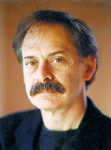In Their Own Words

016
I am one of those who are still comfortable with the phrase “Biblical Archaeology.” It does not mean that if we uncover a non-Biblical artifact on an excavation we have to throw it away. And it does not mean that we are there in the field to prove that the Bible is true. It does not even mean that our purpose and interest in the work is entirely Biblical. Rather, it is recognizing what our culture’s and our communities’ greatest interest in this enterprise is. Most of the questions we are asked in our public lectures are Biblical. Likewise most of the questions our own students ask us are Biblical. That is also the interest of most of our colleagues from other fields on university faculties. And we know in our hearts that it is our own interest as well.
. . .
I submit that calling our enterprise by other names like “Syro-Palestinian archaeology” for a few years was a useful and significant declaration of independence by archaeologists. But that battle has been won. To dig sites in Israel from the world of the 12th to the 2nd centuries B.C.E. now and say that what we are doing is not about the Bible is pointless.
Even those sadly misled and misleading members of our field who are called by the names “minimalist” and “revisionist” (among other names), who deny the very existence of much of the Biblical world, know perfectly well that whatever attention or notoriety they receive is due to their denial of much of the Bible. If, instead of the Bible, they denied any historicity to the Iliad and the Odyssey, and they dated Homer centuries later, their book sales would be significantly reduced—and so would their arrogance. They denigrate the Bible as a reliable source in a burst of joyous post-modern carpet-pulling from under absolutely everyone who ever came before them. They cry, “Notice me,” and that is just what people do. Whether one’s works are an affirmation of the Bible or a negation of the Bible, the fact remains that what everyone wants to hear about is: The Bible.
There are [Biblical] scholars who make the error of thinking that focusing on literary studies excuses them from having to know what we have learned from archaeology.
[But] I am not just talking about the need for those who do Bible to pay due attention to archaeology. The same applies to archaeologists who write about the Bible without a sufficient footing in the Biblical scholarship. Israel Finkelstein, whose skills as an archaeologist I respect, still is unfortunately lost in the sources of the Biblical narrative, arguing that the very same texts are both early and late, not dealing with or acknowledging the existence of the vast work that has been done by Bible scholars, with which he is not familiar.
. . .
The Albrightian ideal of those who could master both Bible and archaeology was fine in Albright’s generation and in my teacher Ernest Wright’s. Wright was known as a Biblical theologian alongside his distinction as an archaeologist. But the explosion of knowledge and of graphomania has made it practically impossible for anyone to control it all anymore (with a couple of notable exceptions). So for the rest of us, and for the future of these fields, it seems to me that the natural solution to this has to be teamwork. It means a high level of things for which we scholars are not exactly well known: Cooperation. Sharing credit.
From Richard Elliott Friedman, “A Bible Scholar in the City of David,” in Thomas E. Levy, ed., Historical Biblical Archaeology and the Future: The New Pragmatism (London; Oakville, CT: Equinox, 2010), pp. 305–307.
I am one of those who are still comfortable with the phrase “Biblical Archaeology.” It does not mean that if we uncover a non-Biblical artifact on an excavation we have to throw it away. And it does not mean that we are there in the field to prove that the Bible is true. It does not even mean that our purpose and interest in the work is entirely Biblical. Rather, it is recognizing what our culture’s and our communities’ greatest interest in this enterprise is. Most of the questions we are asked in our public lectures are Biblical. Likewise […]
You have already read your free article for this month. Please join the BAS Library or become an All Access member of BAS to gain full access to this article and so much more.
